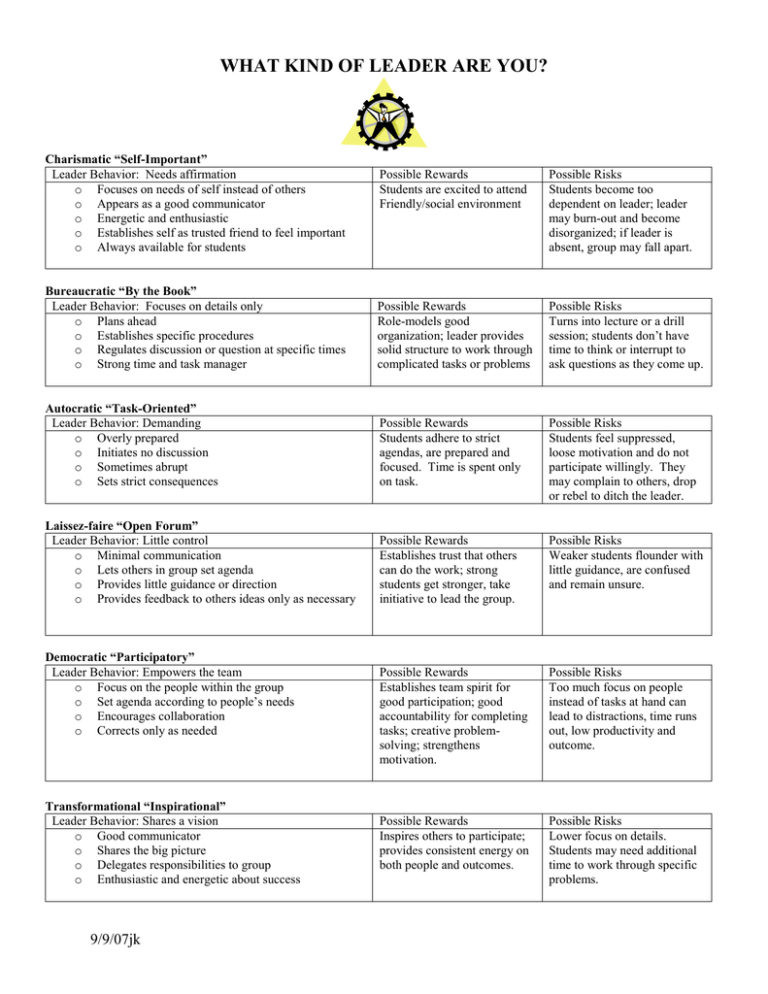Leader Spin (Word)
advertisement

WHAT KIND OF LEADER ARE YOU? Charismatic “Self-Important” Leader Behavior: Needs affirmation o Focuses on needs of self instead of others o Appears as a good communicator o Energetic and enthusiastic o Establishes self as trusted friend to feel important o Always available for students Possible Rewards Students are excited to attend Friendly/social environment Possible Risks Students become too dependent on leader; leader may burn-out and become disorganized; if leader is absent, group may fall apart. Bureaucratic “By the Book” Leader Behavior: Focuses on details only o Plans ahead o Establishes specific procedures o Regulates discussion or question at specific times o Strong time and task manager Possible Rewards Role-models good organization; leader provides solid structure to work through complicated tasks or problems Possible Risks Turns into lecture or a drill session; students don’t have time to think or interrupt to ask questions as they come up. Autocratic “Task-Oriented” Leader Behavior: Demanding o Overly prepared o Initiates no discussion o Sometimes abrupt o Sets strict consequences Possible Rewards Students adhere to strict agendas, are prepared and focused. Time is spent only on task. Possible Risks Students feel suppressed, loose motivation and do not participate willingly. They may complain to others, drop or rebel to ditch the leader. Laissez-faire “Open Forum” Leader Behavior: Little control o Minimal communication o Lets others in group set agenda o Provides little guidance or direction o Provides feedback to others ideas only as necessary Possible Rewards Establishes trust that others can do the work; strong students get stronger, take initiative to lead the group. Possible Risks Weaker students flounder with little guidance, are confused and remain unsure. Possible Rewards Establishes team spirit for good participation; good accountability for completing tasks; creative problemsolving; strengthens motivation. Possible Risks Too much focus on people instead of tasks at hand can lead to distractions, time runs out, low productivity and outcome. Possible Rewards Inspires others to participate; provides consistent energy on both people and outcomes. Possible Risks Lower focus on details. Students may need additional time to work through specific problems. Democratic “Participatory” Leader Behavior: Empowers the team o Focus on the people within the group o Set agenda according to people’s needs o Encourages collaboration o Corrects only as needed Transformational “Inspirational” Leader Behavior: Shares a vision o Good communicator o Shares the big picture o Delegates responsibilities to group o Enthusiastic and energetic about success 9/9/07jk



